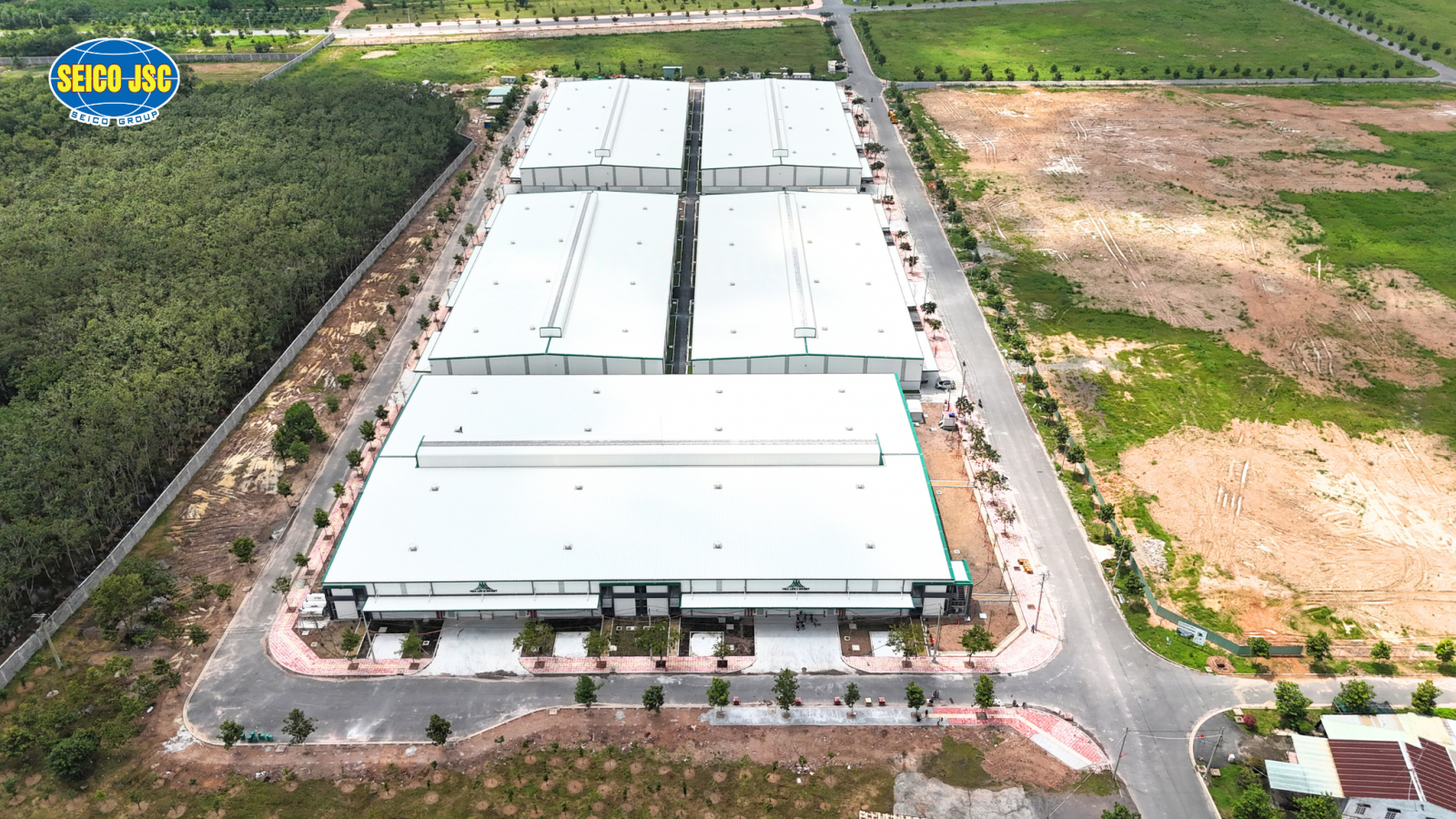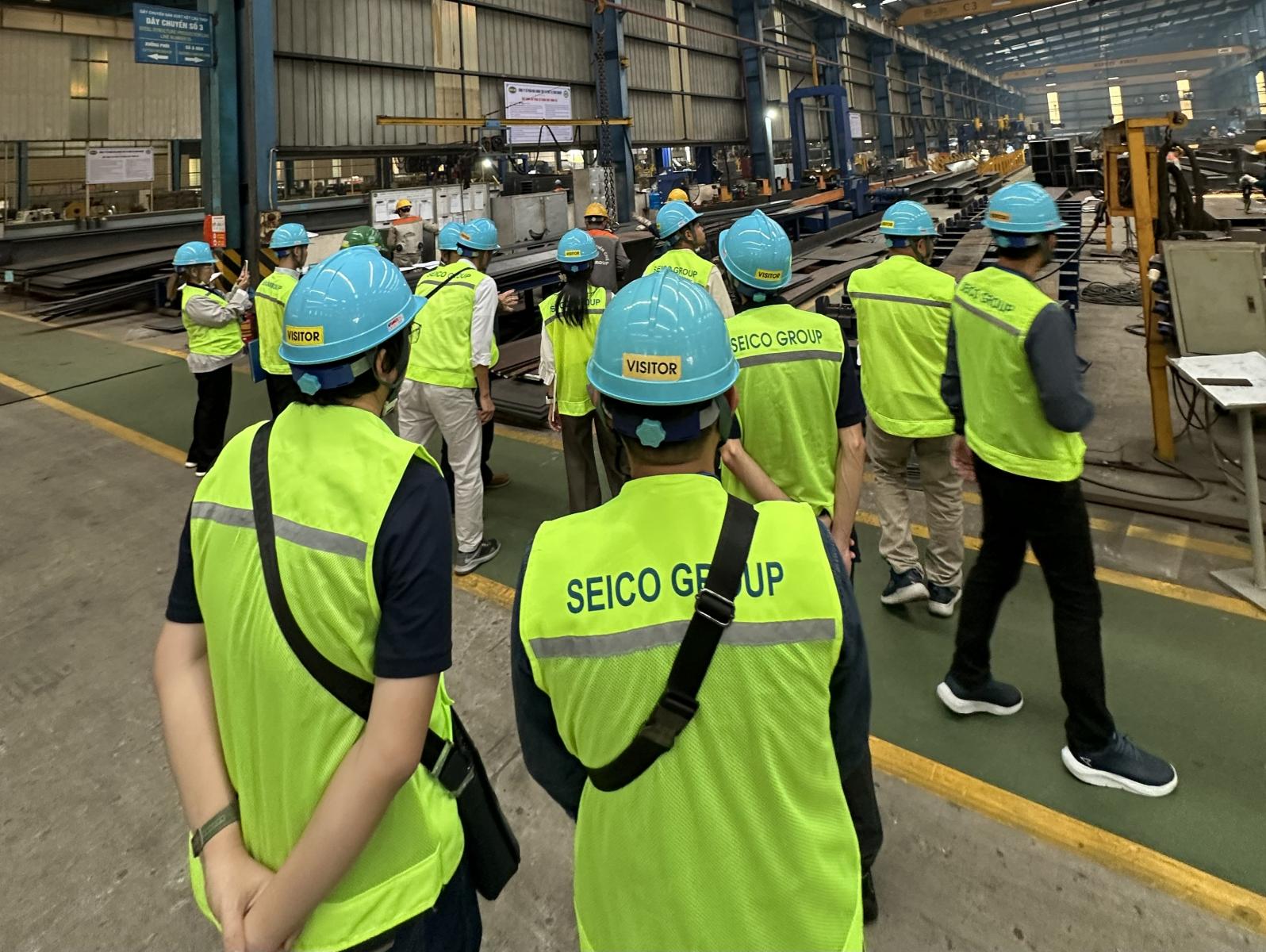THE MOST COMMON STANDARDS RELATED TO STEEL MATERIALS
-
20/03/2024
Steel is one of the most important construction materials used in various industries. To ensure the quality and sustainability of steel products, many standards have been established to provide authentication for this type of material. In the article below, we will learn about the most common standards regulating the strength of steel types.
Steel is an important material in construction
1. AMERICAN STANDARD
ASTM (American Society for Testing and Materials): ASTM are international standards developed for various industries, including construction materials, manufacturing, electronics, chemicals, and many others. ASTM standards specify testing methods, technical specifications, and usage regulations in the production and quality testing of products.
For commonly referenced steel materials:
- ASTM A36: ASTM A36 standard specifies strength requirements for non-alloy structural steel used in various construction applications. Steel under this standard requires a minimum tensile strength of 250 MPa (36 ksi). ASTM A36 steel is commonly used in construction projects such as steel buildings, bridges, transportation infrastructure, and other applications.
- ASTM A572: ASTM A572 standard applies to high-strength steel suitable for projects requiring high load-bearing capacity. The minimum strength specified by this standard is 345 MPa (50 ksi). ASTM A572 steel exhibits good impact resistance, meeting the demands of projects like bridges, underground structures, and industrial workshops.
- ASTM A653: ASTM A653 standard specifies strength requirements for galvanized steel used in construction applications, especially in the steel sheet and zinc-coated sheet metal industry. According to this standard, the minimum strength required is 165 MPa (24 ksi) for steel sheets and 138 MPa (20 ksi) for galvanized sheet metal.
- ASTM A792: ASTM A792 standard defines strength requirements for aluminum-silicon zinc-coated steel. Steel under this standard is often used as roofing and wall materials in the construction industry. The specified minimum strength is 300 MPa (43.5 ksi).
2. JAPANESE STANDARD
The JIS (Japanese Industrial Standards) specifications mentioned refer to various standards for different materials and applications:
- JIS G3101: This standard specifies the general structure of rolled steel sheets, plates, and strips used in various construction and structural applications.
- JIS G3106: This standard covers rolled steels for welded structure, including hot-rolled steel plates, sheets, and strips used in bridges, ships, and other structures.
- JIS G3302: This standard pertains to hot-dip zinc-coated steel sheets and coils used in general applications, particularly in construction, appliances, and automotive industries.
- JIS G3321: This standard specifies hot-dip 55% aluminum-zinc alloy-coated steel sheets and coils, commonly known as Galvalume, used in roofing, siding, and other architectural applications.
These standards ensure uniformity and quality in materials used across various industries in Japan and are sometimes adopted internationally for their reliability and precision.
3. AUSTRALIAN STANDARD
AS (Australian Standards): AS standards constitute a technical standard system in Australia. AS defines requirements, testing methods, and technical regulations for various industries, including architecture, construction, transportation, healthcare, and many others. AS standards are maintained by Australian standard organizations to ensure quality and safety in Australian industries.
- AS 1397: This standard applies to zinc-coated steel products with surface coatings via hot-dip or electroplating methods, widely used in construction, infrastructure, and other industries.
- AS 3678: This standard specifies technical requirements for hot-rolled steel plates, coils, and strips used in structural and construction applications.
- AS 1163: This standard applies to welded and seamless steel pipes, as well as related accessories, used in pipeline systems, construction projects, and other applications.
These are just some of the most common standards regulating the strength of steel types. There are many other standards suitable for each specific country and industry. Adhering to these standards ensures the quality and sustainability of steel products, enhancing safety during usage. As a provider of tens of thousands of tons of structural steel annually, Seico always ensures that its products fully comply with international standards, delivering durable and safe structures to customers.
Seico has more than 20 years of experience in the field of pre-engineered steel buildings
CONTACT US now for quotations and consultations on designing and constructing steel buildings promptly!
Tin tức liên quan

- 27
- Jan
UNDER-FILM CORROSION IN STEEL STRUCTURE - THE SILENT DESTROYER BENEATH PROTETIVE COATINGS
- 27/01/2026
In the steel structure industry, many believe that a visually flawless paint coating is enough to ensure proper steel protection.
Xem thêm
- 23
- Jan
SEICO IS PROUD TO PARTNER WITH THE HLI ECOHUB NAM HÀ PROJECT
- 23/01/2026
Seico is proud to provide steel structure solutions for the green and sustainable ready-built factory complex developed by Hoa Long Invest (HLI), designed in accordance with international LEED standards. The project integrates energy-efficient solutions and minimizes environmental impact.
Xem thêm.png)
- 07
- Jan
STEEL STRUCTURE PREPARATION - THE FOUNDATION FOR SUSTAINABLE STEEL STRUCTURE SOLUTIONS
- 07/01/2026
In steel structure fabrication, proper surface preparation prior to coating is a critical process that directly affects the quality and durability of the structure. Steel surfaces often contain dust, grease, rust, or mill scale; if not thoroughly removed, these contaminants significantly reduce coating adhesion, leading to premature peeling and early corrosion.
Xem thêm.png)
- 30
- Dec
SEICO X OUTDOOR EQUIPMENT MANUFACTURING FACTORY PROJECT – HAI PHONG
- 30/12/2025
The Outdoor Equipment Manufacturing Factory Project in Hai Phong is being developed on a modern scale, meeting high requirements in functionality, construction schedule, and quality. Accompanying the project, SEICO continues to affirm its capabilities and reputation by delivering steel structure solutions for industrial factory buildings.
Xem thêm.png)
- 18
- Dec
- 18/12/2025
At Cai Lan Industrial Park, Ha Long City, Quang Ninh Province – a key industrial hub in Northern Vietnam – the Steel Structure Manufacturing and High-Tech Equipment Fabrication Plant is being developed with large scale and stringent technical requirements. In this project, SEICO is responsible for the supply and erection of steel structures and industrial cladding systems, contributing significantly to the overall structural integrity and architectural appearance of the facility.
Xem thêm.png)
- 10
- Dec
DISCOVER THE MOST STUNNING CURVED STEEL ROOF IN VAN DON
- 10/12/2025
The Phuong Dong Van Don Entertainment Complex is one of the most architecturally distinctive developments in Van Don, Quang Ninh. Beyond its impressive scale, the project sets exceptionally demanding requirements for “non-standard” steel structures: large spans, elegantly curved geometry, complex spatial trusses, and near-perfect aesthetic standards.
Xem thêm.png)
- 06
- Dec
SEICO’S PROUD MILESTONE IN NGHE AN – DUC THINH NEW MATERIALS
- 06/12/2025
With continuous dedication, the SEICO team is actively executing and gradually completing the Đức Thịnh New Materials stone manufacturing plant located in the Nghĩa Đàn Industrial Park, Nghe An Province.
Xem thêm
 Vietnam
Vietnam  English
English  Japan
Japan  Korea
Korea  China
China  Indonesia
Indonesia  Thailand
Thailand 


